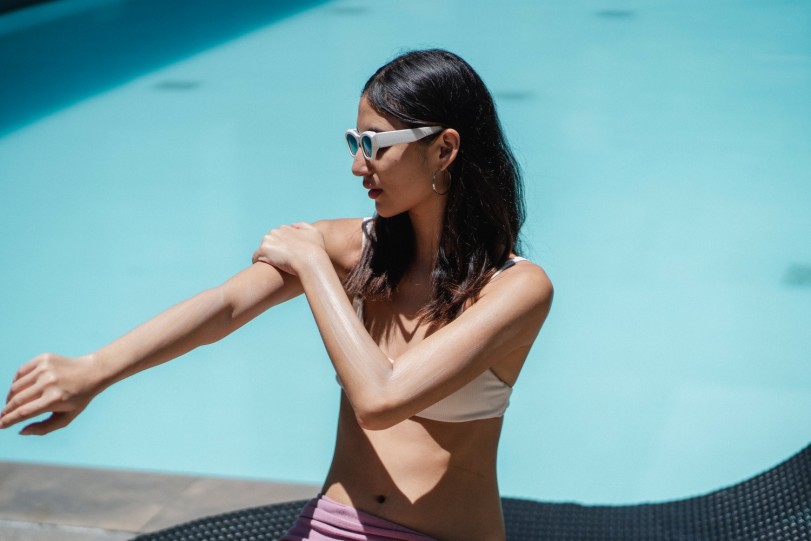
(Photo : Pexels/Armin Rimoldi)
Amid soaring temperatures and the influx of beachgoers, a new study by behavioral research firm Veylinx highlights a shift in consumer sunscreen preferences.
With many Americans seeking refuge from the sun's intense rays, there is a growing demand for sunscreens that offer more than just UV protection.
The study revealed a significant preference for multi-functional sunscreens. Products with anti-aging benefits saw a 49% increase in demand. Hydrating formulations rose by 33%, and those containing vitamin C by 23%.
This trend indicates that consumers are not only looking for sun protection but are also willing to pay more for products that offer additional skincare benefits.
Interestingly, the concept of "sunxiety" -- anxiety related to sun exposure -- is becoming more prevalent.
Although 71% of respondents enjoy being in the sun, 38% reported never feeling fully relaxed during sun exposure. Over 60% noted that they burn easily, and 41% expressed concerns about skin damage.
This growing unease is reflected in the rising number of searches for "what does skin cancer look like," as reported by Google Trends. These insights show the need for ongoing education about the dangers of UV exposure and the importance of regular sunscreen use.
In terms of brand preferences, Neutrogena was favored by 41% of respondents, followed by CeraVe at 38%, Coppertone at 35%, Olay at 33%, Supergoop at 17%, and Target's Up & Up brand at 14%.
Notably, Supergoop's hydrating sunscreens commanded the highest prices, while anti-aging products from Supergoop, CeraVe, and Olay saw the largest increase in demand compared to basic versions.
The study also highlighted a preference for reef-safe sunscreens, with 27% of consumers choosing these products and willing to pay 14% more for them.
However, only 16% opted for sustainable packaging, indicating that while environmental consciousness is growing, it does not yet significantly influence purchasing decisions.
Usage patterns from the study showed that 30% of respondents apply sunscreen daily during summer, and 21% use it five to six times a week.
Additionally, 65% prefer sunscreens with SPF greater than 40. Despite this, only 27% use sunscreen year-round, and 32% apply it only on sunny summer days, highlighting the need for better education on the importance of year-round sun protection.
The research also identified significant opportunities for beauty brands that combine sun protection with other skincare benefits.
Fifty-seven percent of respondents preferred moisturizers with built-in SPF, and nearly three-quarters favored tinted foundations with sun protection. Clear sunscreens, which avoid leaving a white cast, also saw a 16% increase in demand compared to traditional lotions and creams.
The Veylinx study was conducted in June, surveying 1,609 U.S. consumers.

